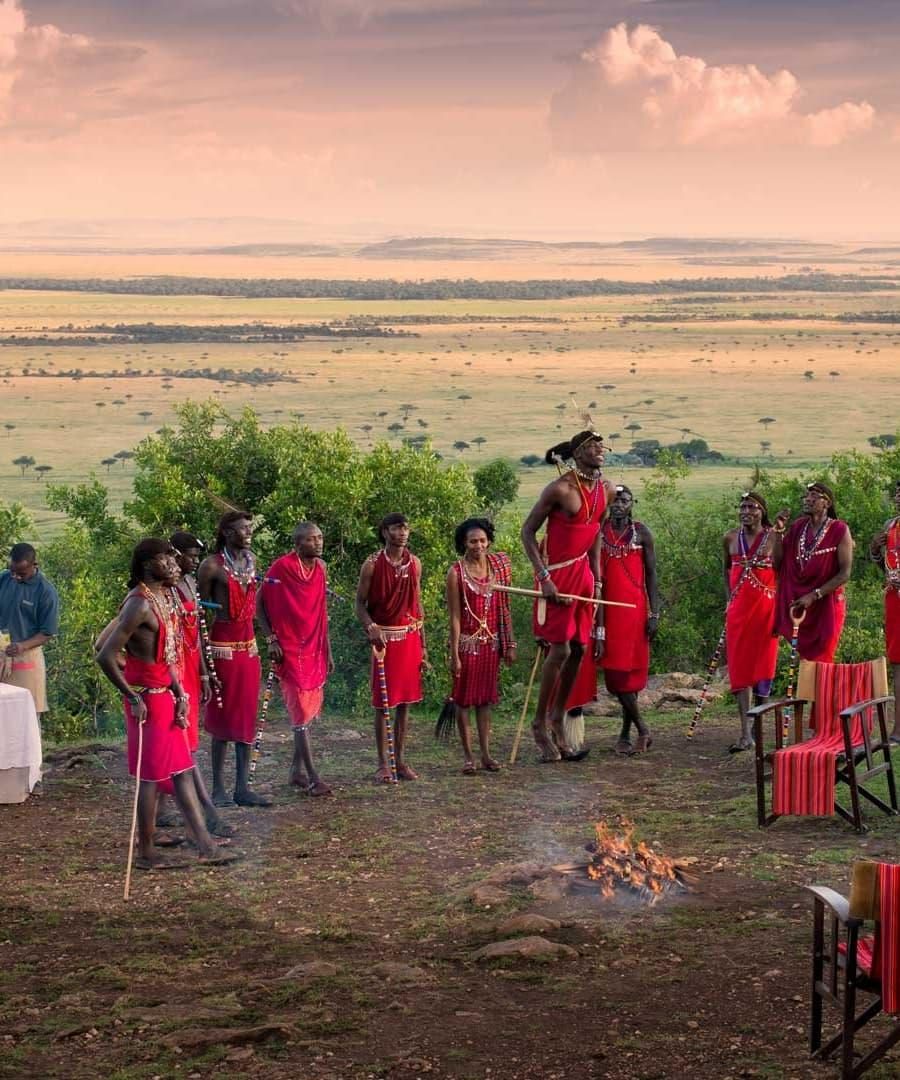Top 5 Ecotourism Destinations for 2024
Embark on a life-changing journey that leaves not only a low eco-footprint but also a positive impact. Mahlatini has always placed sustainability at the center of everything we do, that’s why every time you embark on a Mahlatini journey we give back to the areas you visit. Thankfully, the best ecotourism destinations in Africa offer once-in-a-lifetime wildlife and cultural experiences that benefit travel destinations and travelers alike. Discover our ‘Top 5 Ecotourism Destinations in Africa’ for 2024 below.
What is ecotourism?
The definition of ecotourism and sustainable travel goes beyond sightseeing and simply visiting natural attractions. If you're wondering "What is ecotourism?" and "Why is it so important?" then visit our blog to find out more.
1. Okavango Delta, Botswana
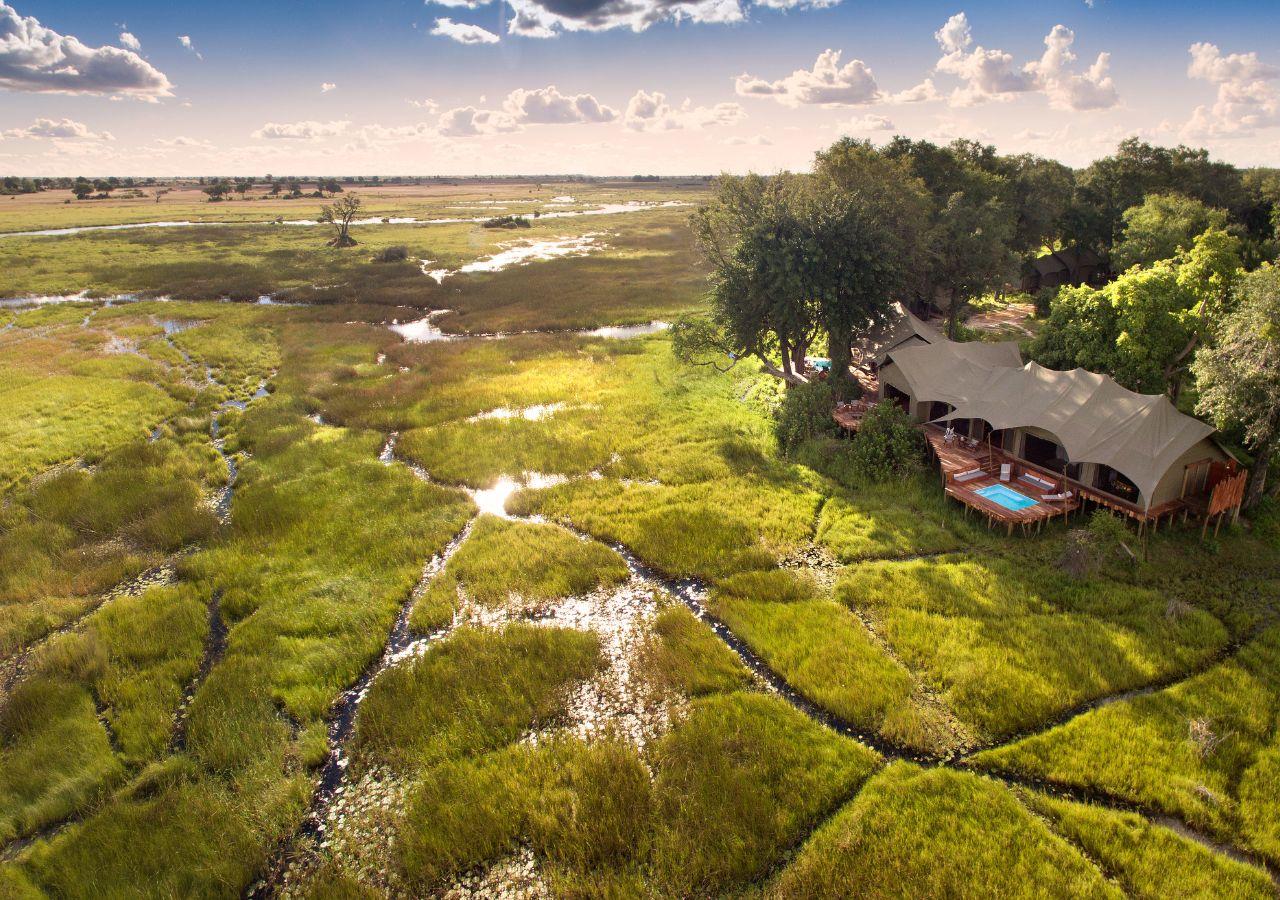
Many consider Botswana to be the most sustainable country in Africa. With almost a third of its land falling within wildlife-protected areas, their forward-thinking approach places emphasis on high-value, low-volume tourism. The government prevents ‘over tourism’ by limiting the number of travelers permitted to visit at one time, meaning that you can experience vast landscapes and wildlife rich wilderness without the crowds. One of Botswana’s must-visit destinations that lives up to its sustainable standards is the Okavango Delta. Voted as one of the Seven Natural Wonders of Africa and a UNESCO World Heritage Site the Okavango Delta’s stunning maze of waterways and lagoons is unique. Usually river deltas lead to the ocean but the Okavango empties into the savanna, flooding the open land and creating an inland delta that guarantees sensational year-round game viewing year-round including the Big 5.
Where to stay: Duba Plains Camp sits in the heart of a 77,000-hectare reserve in the Okavango Delta. This is a wildlife connoisseur's getaway with thousands of animals in a matrix of palm-dotted islands, flood plains, and woodland.
2. Loisaba Conservancy, Kenya
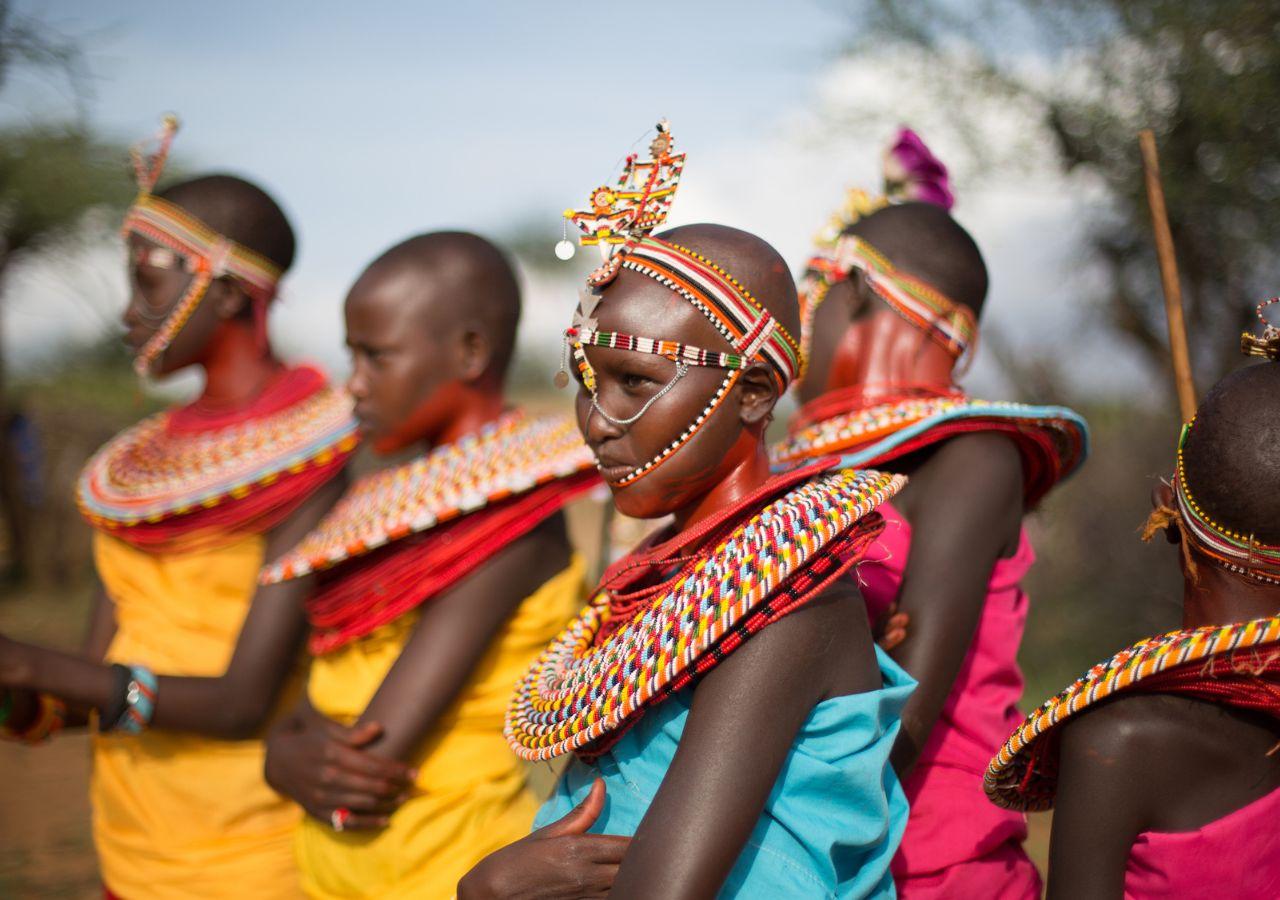
Spanning over 56,000 acres of diverse landscapes the Loisaba Conservancy is a pristine wildlife sanctuary located in Kenya’s Laikipia County. This conservation area is renowned for its commitment to protecting endangered species while also supporting local communities through sustainable tourism and employment opportunities. This remarkable population consists mainly of Maasai and Samburu communities whose cultural traditions go back more than a thousand years. Visitors can explore the idyllic Laikipia Plateau, enjoy thrilling safaris, bird-watching, and community visits. Loisaba is also known for being one of the best locations to see wild dogs! A must-do is to visit the conservancy's dedicated anti-poaching team, made up of four sniffer dogs and their human handler team. The conservancy boasts luxurious accommodation options, such as eco-friendly lodges and tented camps, offering an immersive and responsible wildlife experience in a breathtaking, unspoiled setting.
Where to stay: Loisaba Tented Camp is perched on the edge of an escarpment, offering unhindered views across Laikipia's mottled landscape all the way to snow-capped Mount Kenya. Arguably the camp's highlight is one of Africa's most picturesque infinity pools, looking out across the Laikipia plains.
3. Volcanoes National Park, Rwanda
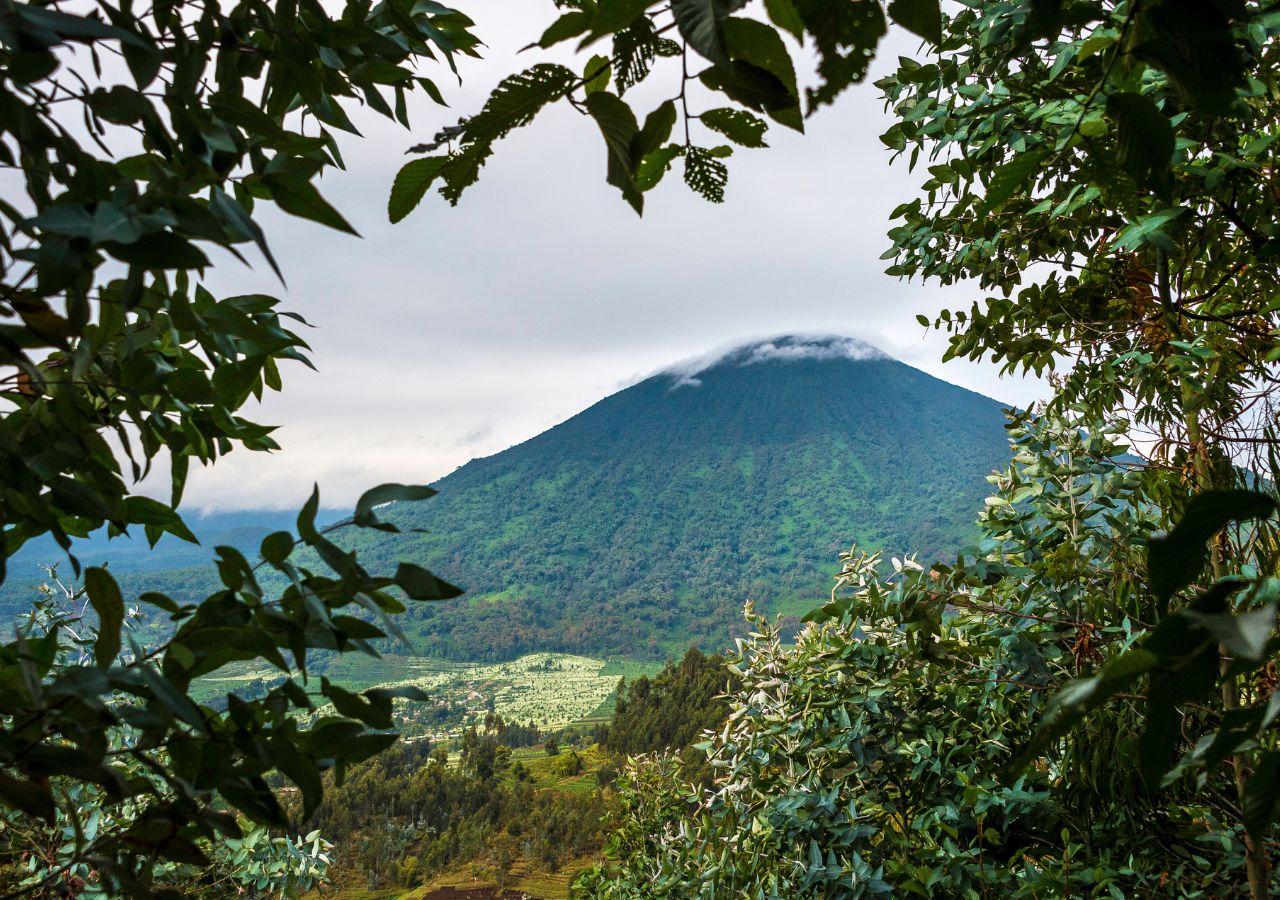
Set on the misty slopes of the Virunga Volcanoes, Volcanoes National Park is the site of incredible conservation efforts in Rwanda that have helped save the mountain gorillas from extinction. The park is named after the chain of dormant volcanoes that dominate its landscape and offer stunning vistas and challenging hikes. The park's wildlife and location make visiting Volcanoes National Park a truly life-altering experience, but naturally, it is the mountain gorilla trekking that steals the spotlight. Locking eyes with our genetically closest animal relatives creates a lifelong connection. Gorilla trekking also directly contributes to the conservation of habitats and the upliftment of local communities. Interestingly, Rwanda as a whole is a front-runner in sustainable travel, with initiatives ranging from banning single-use plastic bags to monthly ‘Car Free Days’ in its green capital city of Kigali.
Where to stay: Sabyinyo Silverback Lodge is found on the edge of the Volcanoes National Park and is the first community-owned lodge in Rwanda. Rest easy knowing your stay here contributes to the protection of this iconic environment and its wildlife.
4. Sabi Sands Game Reserve, South Africa
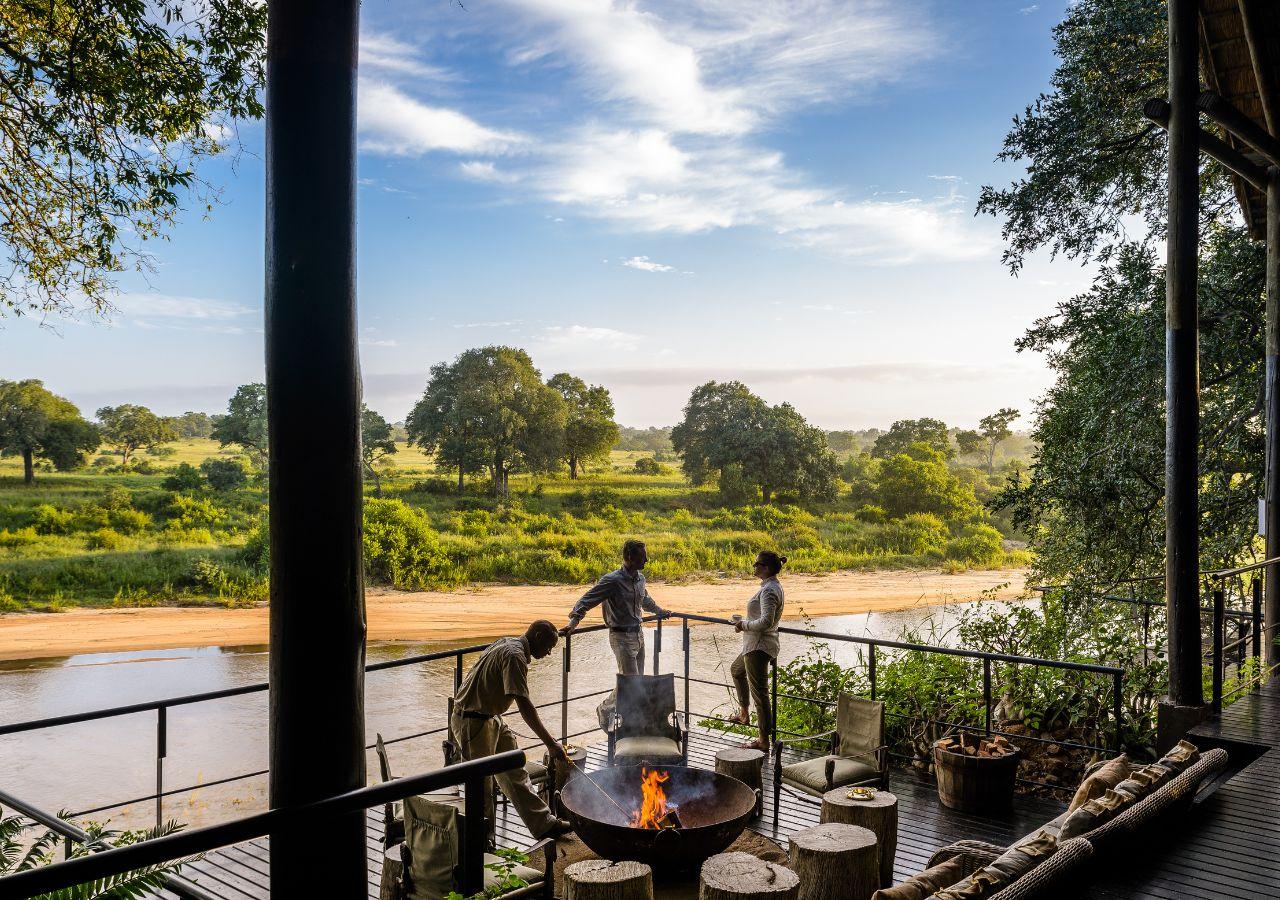
Regarded by many as the birthplace of ecotourism in Southern Africa, and undeniably one of the leading private game reserves in Kruger National Park, Sabi Sands is perfect for those seeking an exclusive safari experience while supporting conservation initiatives and uplifting local communities. The 63,000-hectare Sabi Sands Private Game Reserve is one of the richest wildlife areas on the African continent, known for thrillingly close encounters with an array of animals, particularly the 'Big 5'... and especially elusive leopards! Sabi Sands ensures a unique wilderness sanctuary addressing environmental issues and promoting conservation with the help of the lodges on the reserve and their individual conservation initiatives.
Where to stay: Singita Ebony Lodge is the original property in the world-renowned Singita collection of luxury, environmentally-conscious lodges. Gracing the banks of the serene Sand River while immersing guests in the heart of prime Big 5 country.
5. Alphonse Island, Seychelles
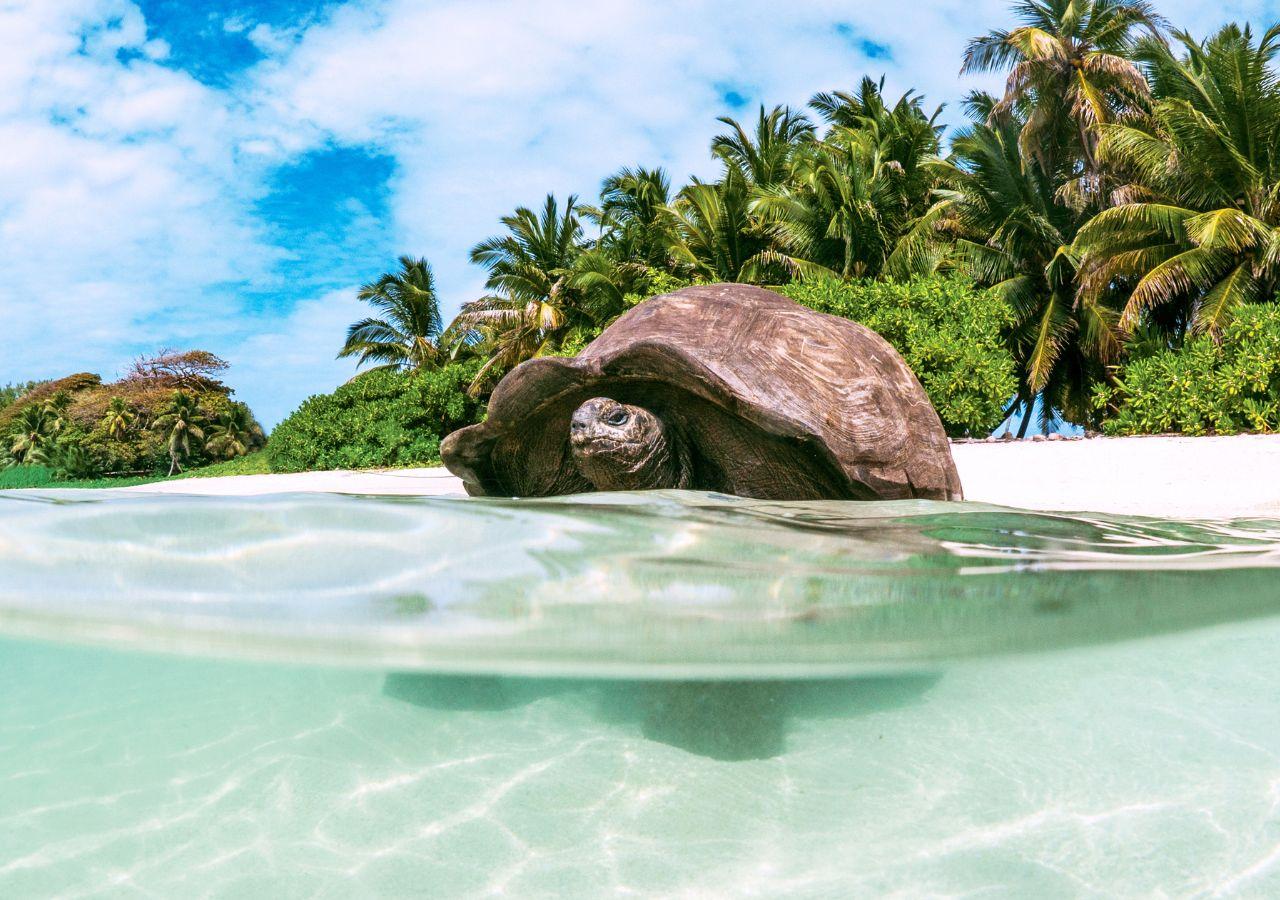
Reached by a 1-hour light aircraft flight from Mahé you'll feel as though you're in an entirely different world. Alphonse Island is part of the Amirantes group of islands, a barefoot luxury tropical paradise of undisturbed solitude. In partnership with the Island Conservation Society (ICS), various long-term projects are underway in which guests can participate should they want to be more involved. From research and educational initiatives to marine conservation efforts including the protection of coral reefs. These efforts ensure the island remains an environmental haven while actively contributing to the well-being of its unique ecosystems and inhabitants. Did you know that Alphonse Island is home to the Aldabra giant tortoise? They are one of the oldest species of tortoises, with a lineage dating back over 100 million years!
Where to stay: Alphonse Island Lodge is set among lush vegetation beside white sand beaches and all corners have ocean views. When visiting, be sure to check out the Activity Centre to discover many island experiences including marine excursions, diving and fishing.



